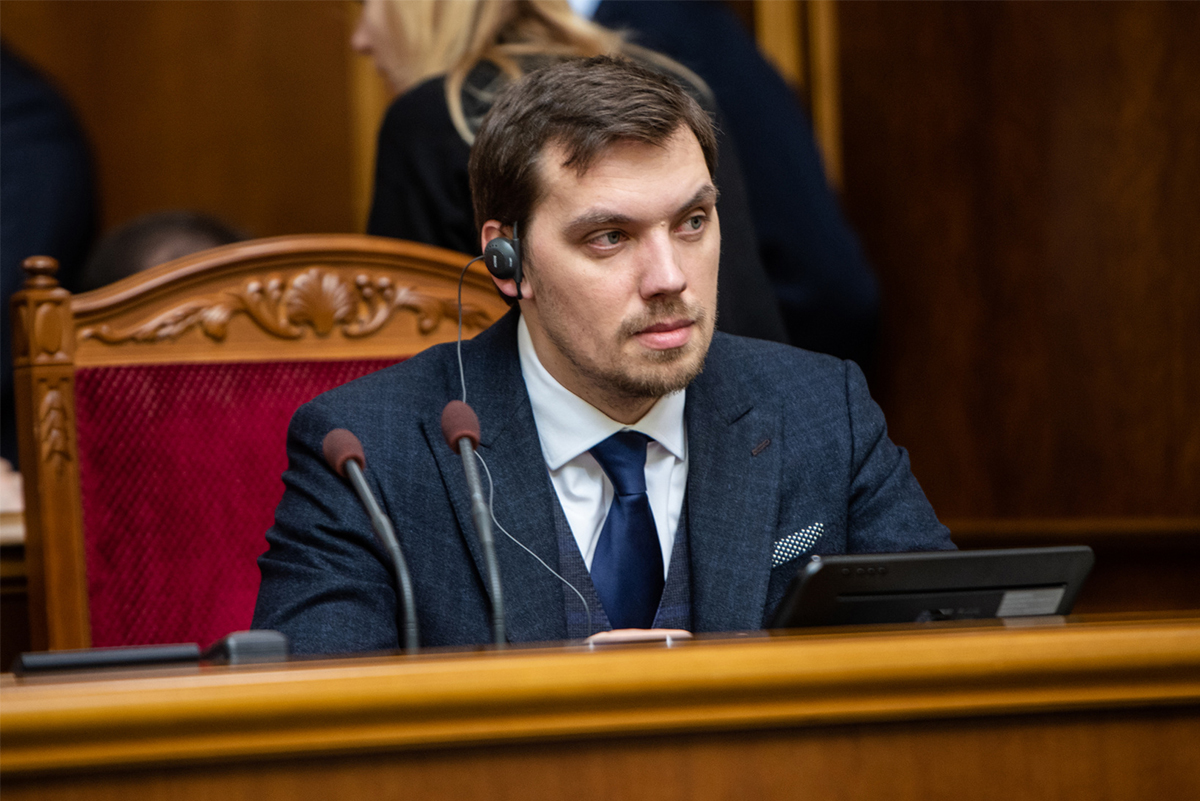The beginning of 2020 was marked by a high profile scandal, featuring the recordings of Prime Minister Oleksiy Goncharuk’s conversations. While the conversations didn’t contain any facts of corruption, they provoked a strong reaction from both the authorities and the society, demonstrating the government’s lack of professional leadership and ethical correctness. Despite Goncharuk retaining his seat as Ukraine’s Prime Minister, the situation has undoubtedly served as the beginning of the end for the current government, which proved incapable of managing the country and overcoming smuggling or economic stagnation. It has also demonstrated institutional weakness, chaos in the implementation of public policy, as well as a complete failure in communication with the society and stakeholders. Goncharuk’s resignation appears to be a matter of time. At the very least, unless there are immediate and effective changes to the government’s composition and structure, swift steps to combat smuggling and corruption, successful measures for fast economic growth and a clear strategy for the country’s development.
Ukraine’s authorities and experts have been actively discussing the need for governmental changes for the past several months. During the first four months of their work, Oleksiy Goncharuk’s government and the Prime Minister himself have demonstrated a clear absence of vision. They have also showcased a lack of understanding of the state's development strategy and the nature of reforms that the government must implement. All of these problems were multiplied by the government’s institutional weakness, dependence, and failure to communicate important decisions with stakeholders and the public. As a result, Oleksiy Goncharuk and his government were rejected by most of the Ukrainian Parliament within the first months of their work, including Volodymyr Zelensky’s “Servant of the People” faction, media and experts. Ukrainians, in turn, perceive Goncharuk as a projection of President Zelensky and his policies, not as an independent political figure. The decisions can only be implemented with the direct authority of the President and his Office. A complete institutional weakness of ministries, departments, regional administrations, as well as the absence of any vision of the country’s further development, have become rather evident.
By the end of 2019, economic markers have also illustrated the inefficiency of Goncharuk’s government. For instance,in such factors as the increased decline in industrial production, contraction of the real economy, smuggling, uncontrolled strengthening of hryvnia, budget deficit of about 50 billion UAH (according to other data - more than 100 billion UAH), domestic government loans, etc. Ignoring these issues, Goncharuk`s government focused on questionable ideas of digitalization, which is yet to have any positive effect on the Ukrainian economy and the reduction of utility bills. By the end of last year, the majority of Ukraine’s political establishment has lost its faith in the efficiency of Oleksiy Goncharuk’s government, as well as in its ability to lead the country. At the same time, the MPs and political experts have been actively discussing the possibilities for a government reboot.
The initiators of the scandal with Goncharuk’s recordings may have meant to instigate changes in the government. Their efforts, however, proved unsuccessful. The conversations have not revealed anything new, merely confirming the government’s lack of professionalism. The timing of their publication was unsuccessful as well – just before a series of important international events that Zelensky’s going to attend. Participating in these meetings during the government’s resignation would weaken the president’s positions. Most importantly, however, Zelensky has not yet determined a successor to renew the government’s effective work. Thus, the president’s decision to keep Goncharuk appears rather logical. At the same time, it doesn’t mean that the government’s reboot is off the agenda.
As of now, there is no answer to who tapped and published Goncharuk’s conversations. According to the main version, it was a form of pressure from Ihor Kolomoiskyi. The resources associated with Kolomoiskyi were the ones to publish the recordings, and the MPs loyal to him have intensified public pressure put on the Prime Minister, initiating questions regarding his resignation.
Ihor Kolomoiskyi is in litigation in London courts and might be prosecuted by US law enforcement. Thus, he is keen to have criminal cases against him – regarding the embezzlement of $5.5 billion – closed. This, in turn, is possible if he either regains the control over the state-owned Privatbank or concludes a settlement agreement on mutual claims settlement. The lack of progress on the settlement of this issue, as well as a potential passage of the law that would ban the return of the bank to its former owner, could have caused the publication of these recordings.
Another version is that the recordings stemmed from an internal conflict within Volodymyr Zelensky’s inner circles, trying to push Zelensky to draw final conclusions regarding the Prime Minister’s post. That’s why the recordings have not revealed anything incriminating or discrediting for the entire Ze-team, only highlighting Goncharuk’s lack of competence and respect for the president. This version does not contradict the previous one, confirming the political establishment’s consensus on the need to reboot the government.
The scandal has demonstrated to the entire country the critical discrepancy between the current government and the challenges that Ukraine faces. Goncharuk’s statement, saying he’s ready to resign, relieved the crisis. It, however, served as an unpleasant surprise for the head of state. Zelensky was forced to publicly announce that he’s giving the Prime Minister a chance to improve the government’s effectiveness in the upcoming months. Nevertheless, it in no way solves a plethora of problems associated with the Cabinet’s work and Goncharuk’s lack of competence.
Oleksiy Goncharuk and his ministers have a very limited amount of time to make high-quality changes. The first steps should include reforming the government, firing the incompetent ministers and appointing effective politicians in their place. It is also integral to develop an understanding and public support of the country’s development strategy. Adopting reforms, such as the land reform or changes to the Labor Code, without public consultations and without accounting for positions of different stakeholders, causes a progressively higher public discontent, which might lead to political turbulence. The push for such controversial initiatives as the legalization of gambling – without wider public discussion – makes one question if shadow lobbyists are affecting the MPs and the government. Only constant discussion with all stakeholders can help to find compromise decisions and a consensus. However, after the scandal with Goncharuk’s tapes, any governmental push for a controversial decision might result in a political crisis – in this case, the government’s resignation would be the simplest, yet not a sufficient step.





